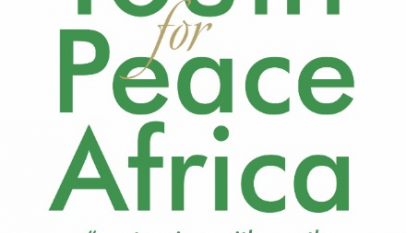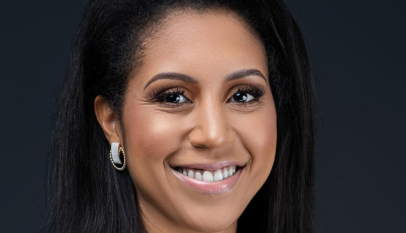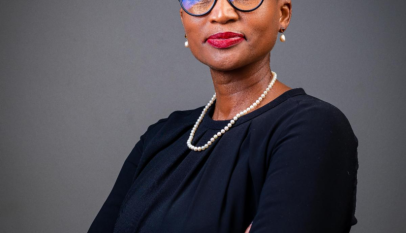INTERVIEW: The story of Imam Ashafa and Pastor Wuye – two worst enemies who became the best of friends
They were religious extremists, who have fought each other trying to protect their co-religionists. One, Imam Muhammad Ashafa, had lost his spiritual mentor and two cousins courtesy of his worst enemy-turned-best friend, Wuye’s group. The other, Pastor James Wuye, had lost his right arm in the hands of his now best friend’s group, Ashafa.
Suddenly, Ashafa who was desperately looking for an opportunity to avenge the death of his spiritual mentor found himself sitting next to Wuye in one room attending a public event. Also in the room was, Idris Musa, a journalist who held the hands of both of them and admonished: “Ashafa and James I know the two of you, you can keep this city together if you choose, please talk!”
In this in-depth interview with African Newspage, Imam Muhammad Ashafa, co-director (with Pastor James Wuye) of Nigeria’s pioneer interfaith relations initiative, the Interfaith Mediation Center of the Muslim-Christian Dialogue, IMC, speaks about how the Centre came into existence in the aftermath of the various ethno-religious conflicts that took place in north central Nigeria beginning in the late 1980s.
The founders, Ashafa and Wuye have traversed the continent of Africa including Sudan, Kenya and Sudan preaching their gospel of peace, telling the followers of the major religions of the world the need to peacefully co-exist with one another.

By Adam Alqali
How the Inter-faith Mediation Centre did came about?
It all started in 1987, during the ethno-religious crisis at college of education, in Kafanchan, that was the beginning of what today has become the Muslim-Christian divide in northern Nigeria. The crisis started between the members of Muslim Students Society, MSS, and members of the Christian students’ fellowship which later metamorphosed and spread over to Katsina, later Kano and other parts of the north.
Then in 1989 there was a repeat in Kasuwan Magani; in 1991 the Jos Muslim-Christian conflict began and then in 1992, Tafawa Balewa and Zangon Kataf conflict, which was very bad as thousands of people lost their lives. Between 1995 and 1996 the conflicts continue to recur in Plateau, Kaduna and Southern Bauchi or Tafawa Balewa and across that belt. We were all part of these incessant conflicts, as extremists protecting our communities.
There was a day we attended an event on polio at Government House, Kaduna, then Col. Jafaru Isa was the military administrator of Kaduna State and was working seriously to resolve the Zangon Kataf dispute. I was there representing the Muslim Students’ Society, MSS, and Pastor James Wuye was representing the Christian Association of Nigeria, CAN. A media man called Idris Musa who was working for the Kaduna State Media Corporation, was also at the event.
During tea break, the media man came closer to us; he held my hand and also held James’ hand. He then said ‘Ashafa and James I know the two of you, you can keep the city together if you choose, please talk.’ That opened old wounds, a very painful memory of what has happened in the past. So, this was the beginning of the journey.
He knew that we were the worst of enemies, I lost my spiritual mentor, Sheikh Ahmad Al Rumi, a big sheikh and two of my cousins, they were all murdered in 1992 in the reprisal attacks of the aftermath of the Zangon Kataf crisis, by James’ group and James lost his arm in the hands of members of our group; they chopped-off his right arm. So, he was a primary victim and I was a secondary victim, knowing that the guy said we should talk.
At that time, talking about interfaith was a taboo, the tension was high, it was the era of Islamisation drive, Muslims were looking for solution and it was also the era of evangelism, American brand of evangelical Christianity called Pentecostal movement had come with a powerful force, it was the days of Reinhard Bonnke. This was a serious phenomenon which created a very sharp divide among northern Nigerians along religious lines.
I was looking for revenge and suddenly here I was talking with a person who was the worst of enemies. I was wondering what to do, and therefore went back to my constituency and my spiritual leader told me Muhammad, Peace Be Upon Him, knows best how to deal with his enemy and so in dealing with his enemy, Muhammad doesn’t exchange sword with sword, he doesn’t exchange hate with hate; rather he exchanged love for hate. He forgives instead of taking vengeance.
So, he said to me, Imam Ashafa, go and look for an enemy and forgive him, promote the spirit of forgiveness and then you will be a true ambassador of Islam; it was unbelievable, how could I forgive the enemy who killed our brothers, destroyed our places of business, burnt our place of worship. That was the beginning of Interfaith Mediation Centre, 21 years ago.
How can you describe the challenges of trying to pioneer interfaith relations activities in Nigeria?
It was a very difficult moment, while pioneering interfaith relations, people viewed us in 3 different ways. The first group saw us as traitors; people who have betrayed their traditions, in fact, we deserved to die. The second group saw us as compromisers; they will say this guy has compromised his faith, how can you smile to a Kafir (non-believer) after all they did to us in Kafanchan, Tafawa Balewa and Plateau? We don’t need to relate with them, lets draw a battle line, let’s kill them.
The third group saw us as doing the right thing but they were the silent majority, they saw us doing the right thing but didn’t have the courage to come out and say yes it is halal to relate with the Christian, it is halal to eat their food; it is halal to go into transaction with Christians. Even at the point of war you don’t have the right to attack Christians if they don’t attack you. You cannot simply attack Christians because Christians have attacked your brothers somewhere else and simply because there are Christian minority around you. This is the message of Islam so you cannot do that.
There was a lot of threat to our life at the beginning of the journey, a lot of good friends felt what we were doing was wrong and so stayed away from us; there was loneliness on the path but Alhamdulillah as today in every part of Nigeria, people are working on interfaith relations including the Sultan, who is the highest authority in Islam. In collaboration with Cardinal Onayekan, they established an interfaith peace initiative in Nigeria and the president came to launch it last year – that was 20 years after we started. Today, many governments have advisers on interfaith relations, when we started nobody could mention interfaith, today, it is a household name so Alhamdulillah. It was good, it was bad and it was ugly.
How do you feel now that people are beginning to understand the need to peacefully coexist hence the many interfaith initiatives across Nigeria?
For me, it is the fulfillment of a dream, that people will be judged on the basis of their input and not on their identity; either religious or ethnic. It has given people the courage to separate the wheat from the chaff; to be able to say the fact that we are Muslims doesn’t mean others are evil or others don’t belong here or if we are Christians, non-Christians don’t belong here. Nigerians are beginning to recognize the value in others; and the values in our religious traditions are being mainstreamed. That is the most important thing for me and that is the success story.

Nigerians are beginning to understand the humanity in fellow Nigerians because what Allah expects from us, more than anything, is our ability to positively impact humanity – and not how much we pray or recite the Quran. Hence the Quran says: “The best among people are those who have been of benefit to others.” So, your religiosity is also determined by how much you are able to enrich the human family and I can see that people are beginning to understand that.
What is your message to those fellow Muslims who feel interfaith relations has no place in Islam?
First and foremost, I want to draw their attention to the reality of Islamic history, when the first state was established in Medina, it was a multi-religious state; the Muslims, the Christians, the Jews, the Serbians and the traditionalists. Together they established the city of Medina with Muhammad, PBUH, as the head of state. The Charter of Medina, called the Constitution of Medina is like the Nigerian constitution, so if you say interfaith relations have no place in Islam you don’t know the history of Medina, it was the virtues and values Muhammad, PBUH, promoted.
In another aspect of interfaith relations, the Prophet never condemned other faiths. When the Muslims were persecuted in Mecca, he said there is a Christian king in whose heart there is justice, the King of Abyssinia (Ethiopia) who was later known as King Negus. He therefore ordered Muslims under the leadership of Ja’afar [Ibn Abi Talib] to go and seek for asylum in Abyssinia and when they went and explain the message of Islam to the king, in the presence of pagan Meccans, who came to forcefully take them back to Mecca, the king said “For gold and diamond, I will give them not on to you, Muslims you are free to live in Abyssinia as long as they will, between us and you is a thin line.” That is King Negus, so Muhammad believed in interfaith relations.
Moreover, on the Mount of Sinai, between Egypt and Palestine, there is a church called St. Catherine Monastery, and Muhammad said, this church shall be protected by all Muslims till the day of Qiyama (Day of Judgment). In what is known as Charter of Privileges, he granted them freedom of worship and movement, freedom to appoint their own judges and to own and maintain their property, exemption from military service, and the right to protection in war. What does that mean, extending a hand of compassion to non-Muslims, that their places of worship must be protected by the whole world. So, if any Muslim say we have nothing to do with non-Muslims Muhammad, PBUH, said we have something to do with them; protect their places of worship.
Muhammad, PBUH, visited non-Muslims who were sick in Medina and because of his ability to establish good relationship with non-Muslims most of them embraced Islam. They embraced Islam not through wars rather because of the positive interpersonal, inter-human relationship between Muhammad, PBUH, his companions and the people of Medina. They were mostly Christians and Jews yet they embraced Islam.
Let’s also look at the history of the Roman Empire, at the time of Prophet Muhammad, the Roman Empire was at war with Byzantine Empire and Rome was destroyed by the Byzantines. The prophet prayed for the protection of Rome and even went ahead to send a message of solidarity to the Pope in Rome and predicted that very soon Rome will be returned to the hands of the Christians. He said our Christian brethren will have Rome back to them; God will bring back Rome to them.
Less than ten years later, the Christians won back Rome. A whole chapter Rome is in the Holy Quran and what is it about, Muhammad’s solidarity and prayers for them when they have lost everything to their enemy. If any Muslim says, we have nothing to do with interfaith relations, why was the prophet in solidarity with the Romans? Why was the chapter Rome revealed? What Muhammad, PBUH, told us is there is no Chri-islam; you must not compromise Islam but you must give others freedom and ability to be what they want to be.
Quran says “To us is our religion and to them is their religion” and in another chapter it says “There is no compulsion in religion”. So, any Muslim who says there is no room for interfaith relations is doing a dangerous harm to Islam because interfaith relations are not foreign to Islamic culture and tradition, Islam acknowledges the value and dignity of other religions and even respect it.
That is why it says you can marry from within the People of the Book (Christians and Jews), you can eat their food. If they say you should build marriage relationship with a people it means those people have a value that Muhammad, PBUH, respects. We are not saying you should go to the church today and shout hallelujah and then go to the mosque to tomorrow to say Allah Akbar, never! But respect them; protect their honour and dignity, if you do this you are the best of Muslims.







